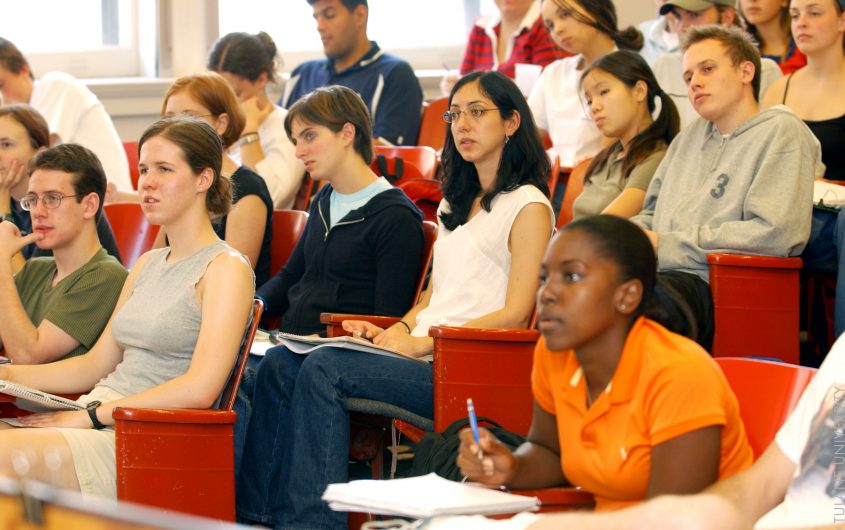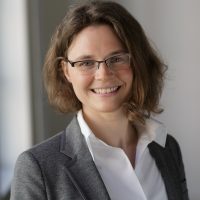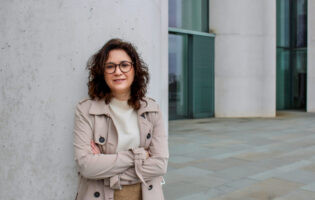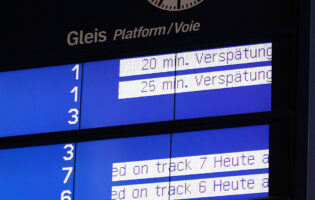
Tulane Public Relations via Wikimedia Commons
Teachers as “Civil Ambassadors” for German-American Dialogue and Understanding

Christiane Wienand
University of Heidelberg
Dr. Christiane Wienand is a historian and works at the University of Heidelberg (Universität Heidelberg), Germany. She is Executive Director (Geschäftsführerin) of the Heidelberg School of Education (HSE), the joint institution for teacher training of the University of Heidelberg and the University of Education Heidelberg. Prior to this, Christiane worked as a postdoctoral researcher in the interdisciplinary research group “Reverberations of War” (directed by Professor Mary Fulbrook and funded by the Arts and Humanities Research Council) at University College London (UCL), UK.
Christiane has published widely on post-1945 European history, particularly on questions relating to reconciliation, youth culture, identity and memory. Her publications include: “Reverberations of a Disturbing Past: Reconciliation Activities of Young West Germans in the 1960s and 1970s,” In: Stephanie Bird, Mary Fulbrook, Julia Wagner und Christiane Wienand (eds.), Reverberations of Nazi Violence in Germany and Beyond. Disturbing Pasts, S. 215–232. London: Bloomsbury Academic, 2016, and her monograph “Returning Memories. Former Prisoners of War in Divided and Reunited Germany.” Rochester/NY: Camden House, 2015.
She is a 2017-2018 participant in AICGS’ project “A German-American Dialogue of the Next Generation: Global Responsibility, Joint Engagement,” sponsored by the Transatlantik-Programm der Bundesrepublik Deutschland aus Mitteln des European Recovery Program (ERP) des Bundesministeriums für Wirtschaft und Energie (BMWi).
Public debate about the transatlantic partnership on the civil society level and programs to foster international understanding often focus on the potential of the younger generations. In the present situation, when the future of the transatlantic partnership in general, and the German-American relationship in particular, is perceived to be at risk, it might be the right time to highlight those whose commitment to international understanding is often taken for granted: teachers and educators on both sides of the Atlantic. The role educators can and should play in the transatlantic partnership is clear: teachers fulfill an important task in motivating young people to become active and thoughtful members of civil society; and in very practical terms, they are often the true driving forces behind German-American school exchanges and other exchange activities within civil society.
Thus, we need to invest (more) in teacher education and to support teachers to become critical civil ambassadors and multipliers for transatlantic dialogue. What could support for teachers look like? One option is to implement a reward system for those American and German teachers, teacher tandems, or groups who pursue new creative transatlantic (school) projects or have been particularly active in working toward international understanding between Germany and the United States. Award recipients could receive stipends to travel overseas, financial support to pursue future projects, or free participation in further education activities that support their individual process of professional development and give them new ideas for their daily work at schools and other educational institutions.
Furthermore, we need to integrate specific elements into existing teacher education programs and into lifelong learning schemes for practicing teachers that encourage them to develop an informed, but also critical, view of the historical roots and the political frameworks of the concept of “reconciliation” and international understanding; of today’s transatlantic dialogue; and of the role civil society fulfills in this dialogue. (Future) teachers should also be aware that civil society in itself is neither inherently “good” or “bad” in a normative sense. And civil society activities do not necessarily aim to foster a transatlantic ideal—they do not necessarily have to be the progressive, liberal forces that we might have in mind, thinking of what we believe are our shared transatlantic values. There are a growing number of civil society activists who promote just the opposite. And they, of course, must not be neglected or even excluded from the transatlantic dialogue.
Finally, the digitalization of our world is both a great chance for the continuation and revitalization of the German-American dialogue as well as a huge challenge: Digital communication and virtual exchange cannot and should not replace face-to-face meetings and visits, nor do they allow us to fully delve into another culture. Rather, they offer a range of possibilities to establish, to keep up with, or to consolidate exchange. The German-American partnership might profit from online-platforms such as the eTwinning network of the European Union (www.etwinning.net), which links teachers across Europe and provides them with a virtual space to exchange thoughts, teaching materials, etc. Yet, digitalization is more than new virtual ways of communication and requires us—and teachers in particular—not only to learn and teach about making use of digital media and tools. Digitalization has fundamentally changed the ways in which we produce, acquire, process, and transfer knowledge; we are still observing the effects this will exert on our transatlantic political and ethical values and core principles, such as our participatory democracy. Teachers have a special task to fulfill here as these changes touch the very core of their profession as explained above. In order to cope with these present challenges, we need a strong German-American exchange, and we need well-prepared and well-supported teachers to make this dialogue happen!
To teachers and all others: have your say via Twitter! Please share your ideas of how to support and encourage teachers becoming critical #CivilAmbassadors for German-American dialogue and understanding @AICGS_DialCivil.









